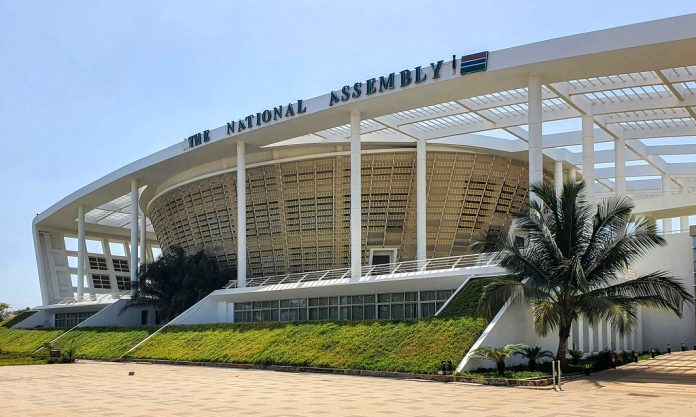By Assan Bah
An investigation by the National Assembly has uncovered what lawmakers say is one of the largest corruption scandals in recent Gambian history, revealing how foreign businessmen used unlicensed local companies to trade $30 million worth of oil without paying taxes or following the law. In a detailed 112-page report released in June, a Joint Committee of the Finance and Public Accounts Committee (FPAC) and the Public Enterprises Committee (PEC) found serious cases of tax evasion, money laundering, corruption, and bribery involving the sale of over 36,000 metric tonnes of petroleum. The investigation names individuals, banks, and government institutions that allegedly failed in their duties—or worse—helped cover up the illegal activities.
The report recommends criminal prosecution for several individuals, including: Mr. Aurimas Steiblys, the Lithuanian national and local representative of Apogee FZC; Mr. Clement N.A. Koranteng, a Ghanaian national and Director of Creed Energy; Mr. Nana Kofi Amoako Addo, associated with Ultimate Beige Logistics; Mr. Yorro Jallow, General Manager of Gam Petroleum, accused of acting as an agent for Apogee FZC; Haddy Dandeh-Jabbie, a legal representative and Company Secretary of Apogee Limited Gambia; Former Minister of Petroleum and Energy, unnamed in the summary, but held responsible for approving a fake petroleum policy that allowed foreign companies to operate without licenses; and Pa Alieu Jawara, Commissioner of the Special Investigations Unit, who is accused of misleading Parliament and halting police investigations under instruction. Several institutions, including the Gambia Police Force, Gambia Revenue Authority, and Central Bank, were also heavily criticised for failing to act when they had the information to stop these illegal activities.
It all began when Hon. Sainey Jawara, the National Assembly Member for Lower Saloum, raised a motion in July 2024 calling for a probe into the secretive sale of petroleum products in The Gambia. He had received information that a foreign company, Apogee FZC, had sold tens of thousands of tonnes of fuel without licenses or taxes—and had done so using two local companies: Creed Energy Ltd. and Ultimate Beige Logistics Ltd. None of these companies were licensed to sell fuel in The Gambia, and one of them, Apogee FZC, was not even registered in the country.
The Financial Intelligence Unit (FIU), which tracks financial crimes, discovered something suspicious: Apogee FZC had no bank account in The Gambia. Instead, it was using sub-accounts opened by Creed Energy and Ultimate Beige Logistics at Access Bank and Ecobank, but these accounts were controlled by a foreigner—Mr. Aurimas Steiblys. FIU officials said this was illegal. Normally, each company must have its bank account and must not allow outsiders to control their funds. Yet here, the same foreign individual was withdrawing hundreds of thousands of dalasis every month from these accounts. FIU said this looked like money laundering. One suspicious transaction involved monthly cash withdrawals of GMD600,000, which FIU suspects was used for paying bribes.
The Gambia Revenue Authority (GRA) confirmed that neither Creed Energy nor Ultimate Beige Logistics paid taxes on the oil they sold. They didn’t even file tax returns. GRA only found out about them after FIU submitted a suspicious transaction report. Even then, GRA made no serious effort to collect the taxes or stop them from operating. The Ministry of Petroleum and Energy also failed. Its Permanent Secretary, Lamin Camara, told the committee that the ministry had no knowledge of Apogee FZC being licensed. He admitted that a letter issued by the former minister, which allowed Apogee FZC to store and sell oil in the country, had no approval from the Cabinet and referred to a policy that didn’t exist. This fake policy allowed foreign companies like Apogee to bypass local oil companies and sell directly to Gambian businesses, giving them an unfair monopoly over the fuel market.
Gam Petroleum, the company that manages the national fuel depot, also failed in its duties. Its General Manager, Mr. Yorro Jallow, admitted that Apogee FZC did not go through any due diligence checks before it was allowed to store and distribute fuel. Jallow also said that it wasn’t his job to check whether a company had a license to sell petroleum products in the country. But witnesses from GNPC and ORYX Gambia told the Committee that it was Mr. Jallow who introduced Apogee FZC to them as a supplier—acting as an agent. The Committee believes this was a conflict of interest and possibly illegal.
Perhaps the most troubling part of the report is the role of the Gambia Police Force. The FIU shared all of its suspicious findings with the police and asked them to investigate. The police opened an inquiry, briefly detained Mr. Aurimas Steiblys, and then released him on self-bail. No passport was collected, no bail bond signed, and no charges were filed. Later, the police admitted that they had halted the investigation. When questioned by the Committee, Police Commissioner Pa Alieu Jawara said the decision came from “the top.” Pressed further, he revealed that the instruction to stop the investigation came from his former boss, the then Inspector General of Police, who is now the Interior Minister. The Committee called this a serious obstruction of justice. It said the way the investigation was stopped allowed Mr. Aurimas to leave the country without consequence. His current whereabouts are unknown.
Both Access Bank and Ecobank allowed the creation of sub-accounts that gave Apogee FZC access to funds, even though the company was not licensed to operate in The Gambia. Access Bank even issued a comfort letter to Creed Energy to help it do business with Apogee—despite knowing that it had less than D15,000 in its account and no valid trade license. The Central Bank, which regulates banks, failed to penalise them or take any meaningful action.
The Joint Committee concluded that there had been a coordinated scheme to allow a foreign company to exploit The Gambia’s petroleum sector without licenses, without taxes, and without regulation. In addition to recommending criminal prosecutions for several individuals, the Committee made sweeping reforms, including stronger enforcement of the Companies Act by the Ministry of Justice, better monitoring of oil traders by PURA and the Ministry of Petroleum, proper due diligence checks by banks before opening accounts for foreign companies, sanctions against Gam Petroleum and public officials who failed in their duties, and a full criminal investigation by independent law enforcement and not the compromised Gambia Police Force.
The report has not been adopted by the National Assembly, yet. A new date has been set for the debate on the report.
The question now is whether any of the recommendations will be acted upon.






















